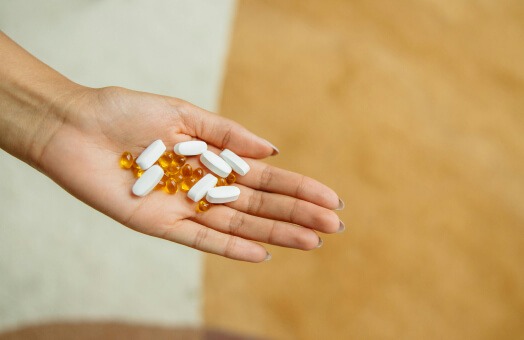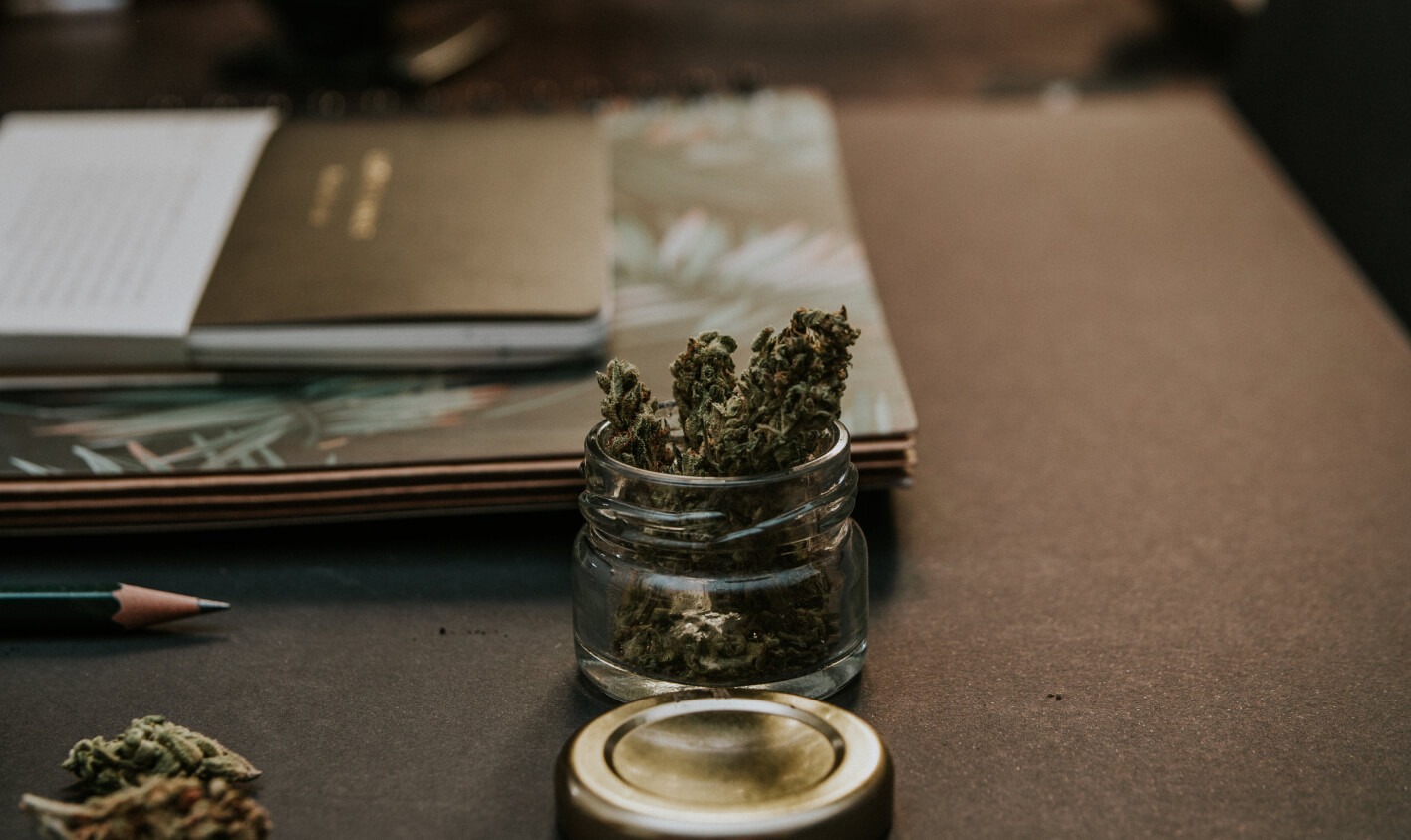Despite its widespread use, marijuana, officially known as cannabis, can lead to physiological dependence, withdrawal, and addiction. According to the Centers for Disease Control and Prevention, approximately 3 out of 10 people who use marijuana have a marijuana use disorder.[1]
Though this doesn’t happen to everyone who uses marijuana, one study estimated that people who use cannabis have about a 10% likelihood of becoming addicted.[2] The risk is greater if people start using marijuana during adolescence and use marijuana heavily.
When does recreational or medicinal use turn into addiction? Find out more about cannabis use disorder, its signs, and how to get help.
Key Points
- Marijuana, or cannabis, is a plant-derived, mind-altering substance that has the potential for abuse and addiction.
- The drug can be physically or psychologically addictive, though not everyone who uses it will become dependent on it.
- Cannabis contains THC, which stimulates the brain’s reward system and promotes the artificial release of dopamine, a “feel-good” hormone.
- If you think you or a loved one may be addicted to cannabis, look for these indicators:
- Do you use cannabis every day?
- Have you tried to quit cannabis and failed?
- Do you get withdrawal symptoms when you quit?
- Do the withdrawal symptoms subside if you use cannabis again?
- Do you get strong cannabis cravings?
- Are you continuing to use marijuana despite problems at work, school, or with friends and family?
- Treatment for cannabis-related substance use disorder includes medical detox, medication-assisted treatment, inpatient rehab, and behavioral therapies.
What Is Marijuana?
Marijuana is a mind-altering substance derived from the flower of the Cannabis sativa plant. It goes by many names, including weed, cannabis, bud, grass, herb, pot, ganja, and Mary Jane.
Though marijuana has been legalized or decriminalized in several states, it’s still classified as a Schedule I substance because of its misuse potential, and it’s still illegal on the federal level.[3] Still, approximately 49.6 million people over the age of 12 used marijuana in 2020, according to the Substance Abuse and Mental Health Services Administration (SAMHSA).[4]
The effects of marijuana vary, but tetrahydrocannabinol (THC), the psychoactive compound in marijuana, can cause feelings of euphoria, changes in sensory perception, and increased appetite. Some people experience adverse effects, such as anxiety or fear.
Marijuana Withdrawal
One of the signs of physiological dependence is withdrawal, which occurs with frequent use or marijuana abuse. When you stop using marijuana after using it heavily, withdrawal sets in and causes physical symptoms like:[7]
- Decreased appetite
- Irritability
- Mood and sleep problems
- Cravings
- Restlessness
- Malaise
Though these symptoms can be unpleasant, they’re not usually life-threatening like the withdrawal symptoms from alcohol or opioids. These symptoms can persist for days or weeks, however, after enduring them one can enjoy the benefits of quitting weed.
Why Is Marijuana Addictive?
Chronic marijuana use causes physiological changes in the brain that may contribute to misuse and dependence. THC is responsible for the reinforcing properties of marijuana and subsequent addiction because it stimulates the brain’s reward system and promotes the release of dopamine, a “feel-good” hormone. This is at a higher level than normally seen with naturally rewarding stimuli, which can lead to addiction.
Another concern with modern marijuana is that it’s far more potent than in past decades. Based on testing of confiscated samples, marijuana potency has been steadily increasing over the past few decades.
In the early 1990s, the average THC content in marijuana samples was less than 4%. In 2018, it was more than 15%.[8] Marijuana concentrates also have a much higher level of THC. Between the two, addiction is a greater possibility with current marijuana use than it once was.
Along with addiction, researchers are unsure to what extent higher concentrations of THC will affect the body and brain of marijuana users. They’re unsure if people are adjusting for the increased potency by using less marijuana at one time or using it less frequently. However, it would be challenging to adjust for these differences accurately.
How Do You Know If You Are Addicted to Marijuana?
Along with the diagnostic criteria for cannabis use disorder, there are some signs that marijuana use has ventured into misuse or addiction:
- Do you use marijuana every day?
- Have you tried to quit marijuana and failed?
- Do you get withdrawal symptoms when you quit?
- Do the withdrawal symptoms subside if you use marijuana again?
- Do you get strong marijuana cravings?
- Are you continuing to use marijuana despite problems at work, school, or with friends and family?
If you answered “yes” to several of these questions, you may have cannabis use disorder.
Treatment for Marijuana Use Disorder
Marijuana use disorder is a growing problem, but fortunately, addiction treatment can be effective in addressing marijuana addiction. Like other drug abuse treatments, the treatment programs for marijuana use disorder are tailored to the individual and their unique use patterns, history, and possible co-occurring disorders.
If you or a loved one is struggling with marijuana use disorder, there are numerous options available, including:

Medical Detox

Marijuana has withdrawal symptoms, although they are generally less severe than those of heroin or alcohol, but you can still benefit from a medical detox. The purpose of detox is to manage withdrawal symptoms to keep you safe and comfortable while your body clears itself of marijuana.

Inpatient Treatment

Inpatient treatment involves a hospital or residential setting that offers 24/7 care and supervision while the patient undergoes treatment plans. This is ideal for people struggling to quit independently and benefit from an intensive program’s accountability and structure.

Medication

There are no FDA-approved medications to treat marijuana use disorder specifically, but medications can help address accompanying issues like insomnia or co-occurring mental health disorders like depression or anxiety.

Behavioral Therapies

Behavioral therapies, such as cognitive behavioral therapy (CBT) or motivational enhancement therapy, are often included in treatment plans for cannabis use disorder. They’re highly effective at increasing self-control, identifying problematic behavioral patterns and relapse triggers, and developing strategies to overcome marijuana misuse.
Frequently Asked Questions
Can I Get Addicted to Weed?
Yes, marijuana has the potential for addiction. Not everyone will get a marijuana use disorder from using weed, but the possibility exists. The only way to truly prevent addiction is to avoid marijuana altogether.
Is Medical Marijuana Addictive?
Unfortunately, some prescription medications can be addictive, and medical marijuana can also lead to cannabis use disorder. According to a study from the Massachusetts General Hospital, medical marijuana can lead to cannabis use disorder.[9] The highest risk came from the people who use medical marijuana to relieve anxiety and depression.
Is Weed Psychologically Addictive?
While there’s been debate over whether the use of marijuana can cause physical addiction or physical dependence, it’s been known to be psychologically addictive. People who use marijuana frequently can experience psychological dependence and mental side effects that make it challenging to quit.
Is THC Physically Addictive?
For a long time, marijuana was thought to be primarily psychologically addictive but not physiologically (physically) addictive. People who use marijuana chronically and quit can experience withdrawal symptoms – which are primarily due to THC and a classic symptom of drug addiction and substance use disorders.
How Long Does It Take to Get Addicted to Weed?
There’s no clear answer to this question as it varies by individual. Some people may develop a marijuana addiction quickly, while others may use marijuana chronically throughout their lives without any dependency. However, there are long-term side effects of marijuana to consider.
Understanding your risk for cannabis use disorder. (2024, February 15). Cannabis and Public Health. Retrieved from https://www.cdc.gov/cannabis/health-effects/cannabis-use-disorder.html on 2024, June 20.
Understanding your risk for cannabis use disorder. (2024, February 15). Cannabis and Public Health. Retrieved from https://www.cdc.gov/cannabis/health-effects/cannabis-use-disorder.html on 2024, July 3.
Drug scheduling. DEA. (n.d.). Retrieved from https://www.dea.gov/drug-information/drug-scheduling on 2023, June 22.
Substance Abuse and Mental Health Services Administration. (2021). Key substance use and mental health indicators in the United States: Results from the 2020 National Survey on Drug Use and Health (HHS Publication No. PEP21-07-01-003, NSDUH Series H-56). Rockville, MD: Center for Behavioral Health Statistics and Quality, Substance Abuse and Mental Health Services Administration. Retrieved from https://www.samhsa.gov/data/ on 2023, June 22.
Myths and current research. (2023). University of Notre Dame. Retrieved from https://mcwell.nd.edu/your-well-being/physical-well-being/drugs/marijuana-or-cannabis-sativa/quitting-marijuana-a-30-day-self-help-guide/myths-and-current-research/ on 2023, June 22.
Understanding your risk for cannabis use disorder. (2024, February 15). Cannabis and Public Health. Retrieved from https://www.cdc.gov/cannabis/health-effects/cannabis-use-disorder.html on 2024, July 3.
U.S. Department of Health and Human Services. (2021a, April 13). Is marijuana addictive?. National Institutes of Health. Retrieved from https://nida.nih.gov/publications/research-reports/marijuana/marijuana-addictive on 2023, June 22.
U.S. Department of Health and Human Services. (2021a, April 13). Is marijuana addictive?. National Institutes of Health. Retrieved from https://nida.nih.gov/publications/research-reports/marijuana/marijuana-addictive on 2023, June 22.
Hampton, T. (2022, March 18). Medical marijuana may trigger substance abuse. Harvard Gazette. Retrieved from https://news.harvard.edu/gazette/story/2022/03/medical-marijuana-may-trigger-substance-abuse/ on 2023, June 22.

